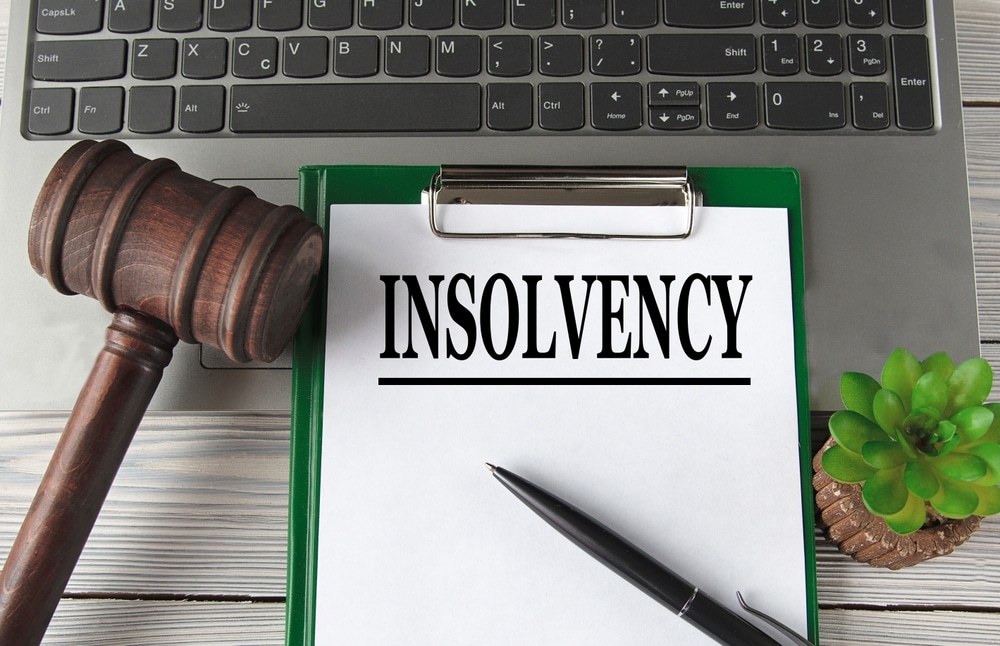The Role of Insolvency Lawyers in Navigating Bankruptcy
Understanding Bankruptcy
Bankruptcy is a legal process that allows individuals or businesses unable to repay their debts to seek relief from some or all of their obligations. This process can be daunting, fraught with complex legal jargon and emotional stress. The primary aim of bankruptcy is to provide a fresh start for the debtor while ensuring fair treatment for creditors. However, navigating this intricate landscape can be overwhelming without professional guidance.
Insolvency lawyers play a crucial role in this process of insolvency and restructuring, acting as advocates for their clients and helping them understand their rights and obligations. Their expertise is invaluable in ensuring that the bankruptcy process is handled efficiently and effectively. These legal professionals not only assist in paperwork and court proceedings but also offer emotional support, helping clients manage the psychological burdens that often accompany financial distress.
Types of Bankruptcy
In the UK, there are several types of bankruptcy procedures, each tailored to specific circumstances. The most common forms include individual voluntary arrangements (IVAs), bankruptcy orders, and company voluntary arrangements (CVAs). Each type has its own set of rules and implications, making it essential to consult with an insolvency lawyer to determine the most suitable option.
Individuals facing financial difficulties may opt for an IVA, which allows them to repay a portion of their debts over a set period while avoiding bankruptcy. This arrangement can be particularly appealing as it enables individuals to maintain a degree of control over their financial situation. On the other hand, a bankruptcy order may be the best route for those unable to meet their financial obligations. It is important to note that while bankruptcy can provide relief, it also comes with significant repercussions, such as a lasting impact on credit ratings and potential loss of assets. Understanding these options is critical, and an insolvency lawyer can provide clarity and guidance, ensuring that individuals are fully aware of the long-term implications of their choices.
Moreover, businesses facing insolvency may consider a Company Voluntary Arrangement (CVA), which allows them to propose a repayment plan to creditors while continuing operations. This option can be particularly beneficial for companies looking to restructure and regain financial stability without resorting to liquidation. The process involves negotiating terms with creditors, and having an experienced insolvency practitioner can significantly enhance the chances of a successful outcome. Each of these pathways offers distinct advantages and challenges, underscoring the importance of tailored legal advice in navigating the complexities of bankruptcy.
The Role of Insolvency Lawyers
Insolvency lawyers specialise in the legal aspects of bankruptcy and insolvency. Their primary role is to assist clients in navigating the complexities of the bankruptcy process. This includes advising on the best course of action, representing clients in court, and ensuring compliance with legal requirements.
These professionals are equipped with the knowledge and experience necessary to handle various aspects of insolvency, from filing paperwork to negotiating with creditors. Their involvement can significantly impact the outcome of a bankruptcy case, making it essential to engage their services early in the process.
Advising on Legal Options
One of the key functions of an insolvency lawyer is to provide comprehensive advice on the legal options available to clients. This includes assessing the client’s financial situation and determining whether bankruptcy is the most appropriate course of action. They can also explore alternatives to bankruptcy, such as debt management plans or IVAs, which may be more beneficial depending on the individual’s circumstances.
By evaluating the specific details of a case, insolvency lawyers can help clients make informed decisions. This guidance is particularly important, as the implications of each option can vary significantly, affecting the client’s financial future.

Representation in Court
Insolvency lawyers also represent clients in court proceedings related to bankruptcy. This can involve filing for bankruptcy, attending hearings, and negotiating with creditors. Their legal expertise ensures that clients are adequately represented and that their rights are protected throughout the process.
Having a skilled lawyer by one’s side can alleviate much of the stress associated with court appearances. They can prepare clients for what to expect, explain legal terminology, and advocate on their behalf, ensuring that their interests are prioritised.
Navigating the Bankruptcy Process
The bankruptcy process can be lengthy and complicated, often involving numerous steps and legal requirements. An insolvency lawyer can streamline this process, ensuring that all necessary documentation is completed accurately and submitted on time. They can also provide ongoing support and advice, helping clients navigate any challenges that may arise.
Filing for Bankruptcy
The first step in the bankruptcy process is filing a bankruptcy petition. This involves submitting a detailed application to the court, outlining the individual’s financial situation, including assets, liabilities, and income. An insolvency lawyer can assist in preparing this petition, ensuring that all required information is included and presented clearly.
Once the petition is filed, the court will review the application and may schedule a hearing to assess the case. An experienced insolvency lawyer will be able to represent the client during this hearing, articulating their case and addressing any concerns raised by the court or creditors.
Dealing with Creditors
One of the most challenging aspects of bankruptcy is dealing with creditors. An insolvency lawyer can act as a buffer between the client and their creditors, handling communications and negotiations on their behalf. This can help alleviate the stress of direct interactions, which can often be confrontational and overwhelming.
Additionally, lawyers can negotiate repayment terms or settlements with creditors, potentially reducing the overall debt burden. Their experience in dealing with financial institutions and understanding of debt laws can lead to more favourable outcomes for clients.
Benefits of Hiring an Insolvency Lawyer
Engaging an insolvency lawyer offers numerous benefits, particularly in terms of expertise and support. Their knowledge of bankruptcy law and procedures can make a significant difference in the outcome of a case.
Expertise in Bankruptcy Law
Insolvency lawyers possess specialised knowledge of bankruptcy law, allowing them to navigate the complexities of the legal system with ease. They stay updated on any changes in legislation and understand the nuances of different bankruptcy procedures. This expertise is invaluable in ensuring that clients receive accurate advice and representation.
Moreover, their familiarity with the court system can expedite the process, as they know the necessary steps to take and the documentation required at each stage.
Emotional Support
Bankruptcy can be an emotionally taxing experience, often accompanied by feelings of shame and anxiety. An insolvency lawyer not only provides legal support but also offers emotional reassurance. They understand the challenges their clients face and can provide a compassionate ear during difficult times.
Having a professional advocate can alleviate some of the emotional burden, allowing clients to focus on rebuilding their financial future rather than getting bogged down in the details of the process.
Choosing the Right Insolvency Lawyer
Finding the right insolvency lawyer is crucial to successfully navigating bankruptcy. Several factors should be considered when making this decision, including experience, reputation, and communication style.
Experience and Specialisation
When selecting an insolvency lawyer, it is essential to consider their experience in handling bankruptcy cases. Lawyers with a strong track record in insolvency law will be better equipped to manage the complexities of the process. Additionally, those who specialise in bankruptcy law will have a deeper understanding of the relevant regulations and procedures.
Prospective clients should also seek out lawyers who have successfully represented clients in similar situations, as this can provide reassurance regarding their capabilities.
Reputation and Reviews
Researching a lawyer’s reputation can provide valuable insights into their professionalism and effectiveness. Online reviews, testimonials, and referrals from previous clients can help gauge the lawyer’s ability to deliver satisfactory results.

It is also beneficial to check if the lawyer is a member of professional organisations, as this can indicate a commitment to maintaining high standards in their practice.
Conclusion
Navigating bankruptcy is undoubtedly a challenging process, but the support of an experienced insolvency lawyer can make a significant difference. Their expertise in bankruptcy law, combined with their ability to provide emotional support, can guide clients through this difficult time.
By understanding the role of insolvency lawyers and the benefits they offer, individuals and businesses facing financial difficulties can make informed decisions and take the necessary steps towards recovery. With the right legal guidance, a fresh start is not just a possibility; it can become a reality.
See also: What do insolvency lawyers do and when should you hire one?


